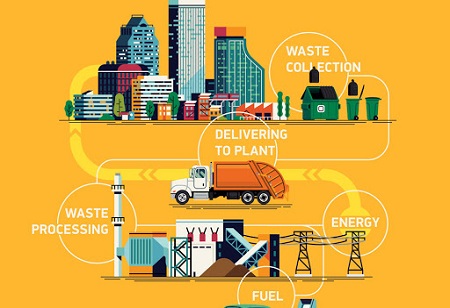Bins are being increasingly used for storage of waste in an effective way and are playing an important role in the implementation of new waste management strategies. With new regulations put in place pertaining to waste segregation, storage, disposal, and recycling, new types of bins are being manufactured in an attempt to cater to both commercial and residential use. Being primarily made of plastic or steel, different types of bins are being used in different types of environments and settings. They have gone a long way in solving the issue of waste management for commercial and industrial premises as the amount of waste to be handled is large. The waste generated annually in urban India is more than 60 million tonnes and is expected to reach over 160 million tonnes by 2030.
As a result, several new players are venturing into this market looking to leverage smart waste
management, which in turn is helping the government initiatives as well. The focus of the players in this segment has been on improving the efficiency and longevity of the products as they can fetch huge returns. Once that is ensured, making changes and improvements in the process with an aim of optimization should be the next thing to do in order to continue treading on the path of sustainability.
In case of food businesses, almost 70 percent of the waste disposed in bins is organic. The remaining part is plastic or other non-biodegradable objects which will not get decomposed. The non-biodegradable waste having calorific value can be converted into RDF (Refuse Derived Fuel). Hence, if solid waste is treated on-premises, it can reduce the amount of waste to be discharged significantly. That in turn helps organizations bring down their waste disposal cost by almost 50 percent. Any measure taken to increase the efficiency in waste disposal is bound to increase the demand for bins.
At a World Environment Day event on June 5, Union Housing and Urban Affairs Minister Hardeep Singh Puri said, “Scientific processing of solid waste which was mere 18 per cent at the start of the Swachh Bharat Mission in 2014 has more than tripled to 65 per cent.”
However, the Covid-19 pandemic has brought many sectors to a standstill and its effect is being felt across the country. This is hampering the growth of this market, as with very few businesses and commercial establishments being operational, the amount of waste generated is minimal and can easily be managed with use of a small number of bins. Going forward, reduction of the amount of waste generated at source is going to be a prerequisite for effective solid waste management strategies.
